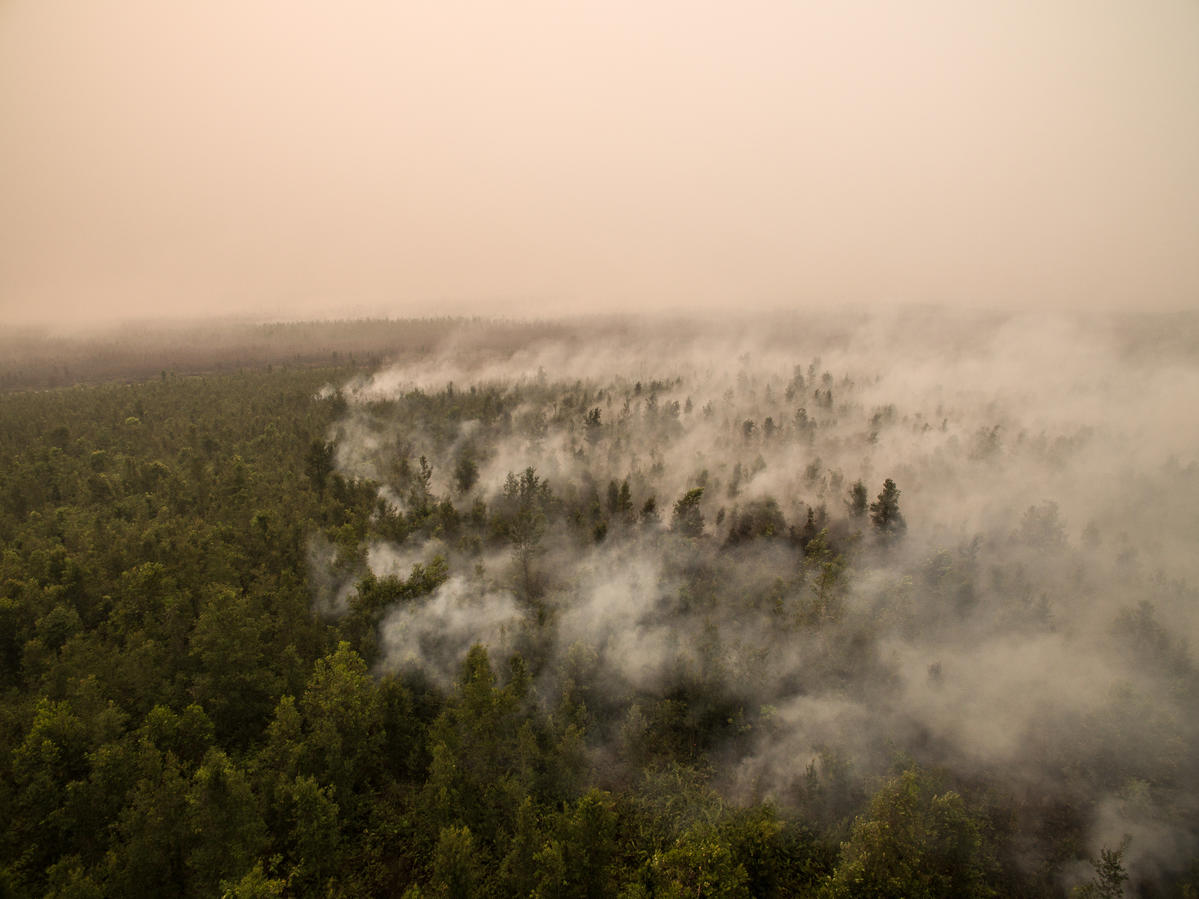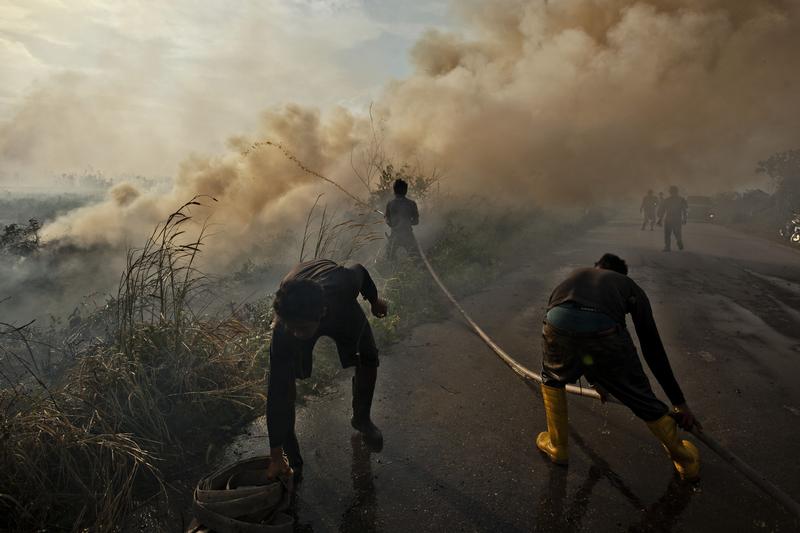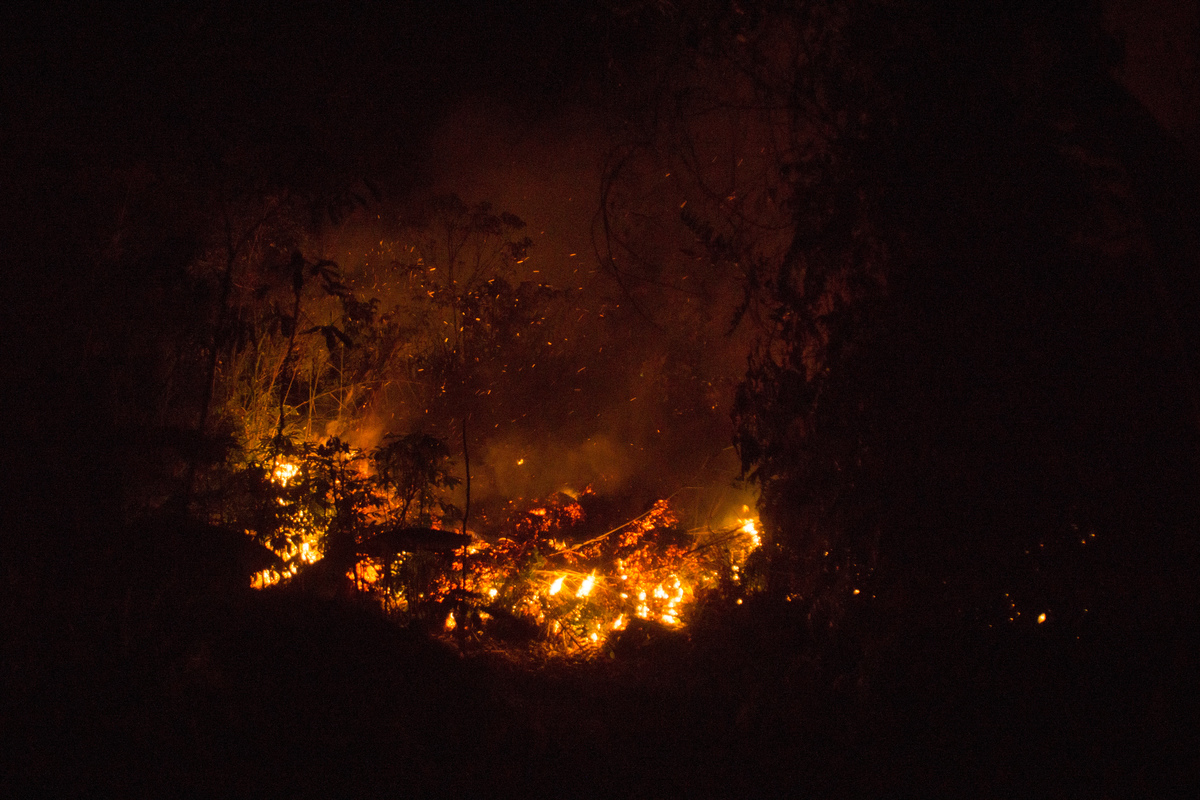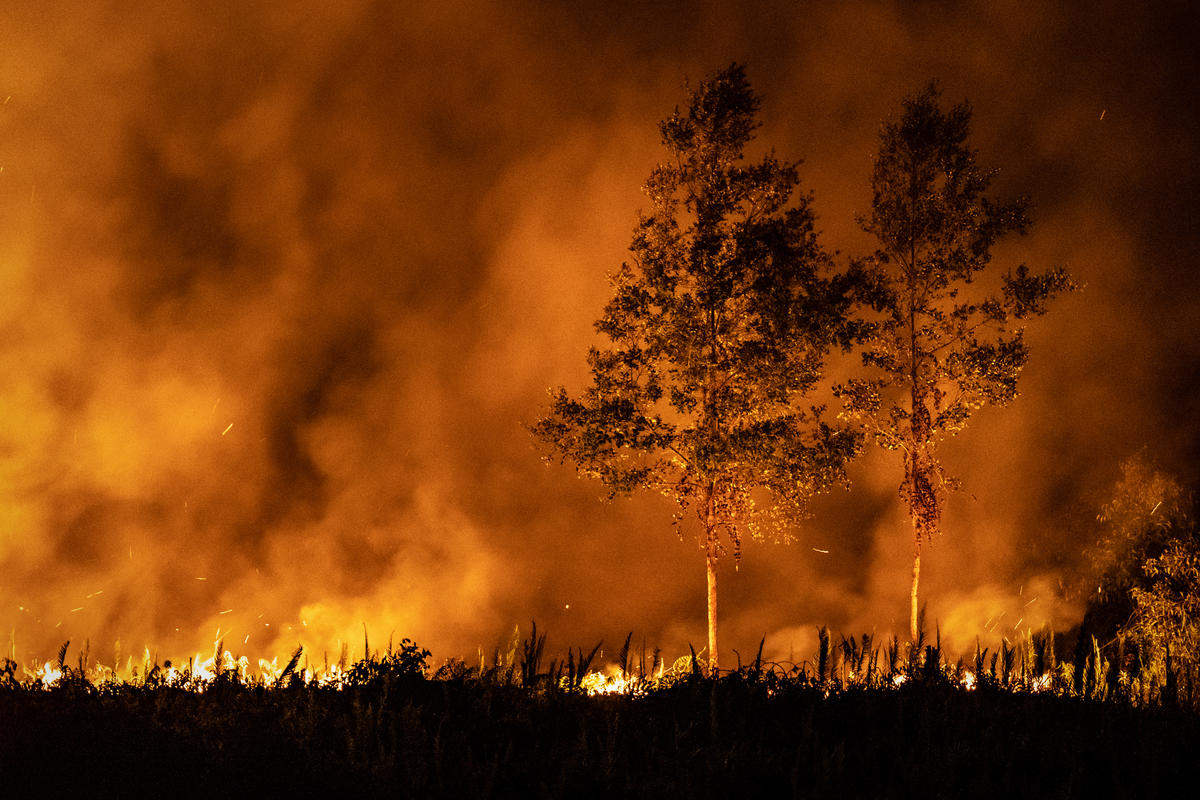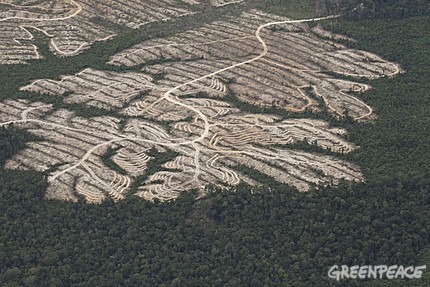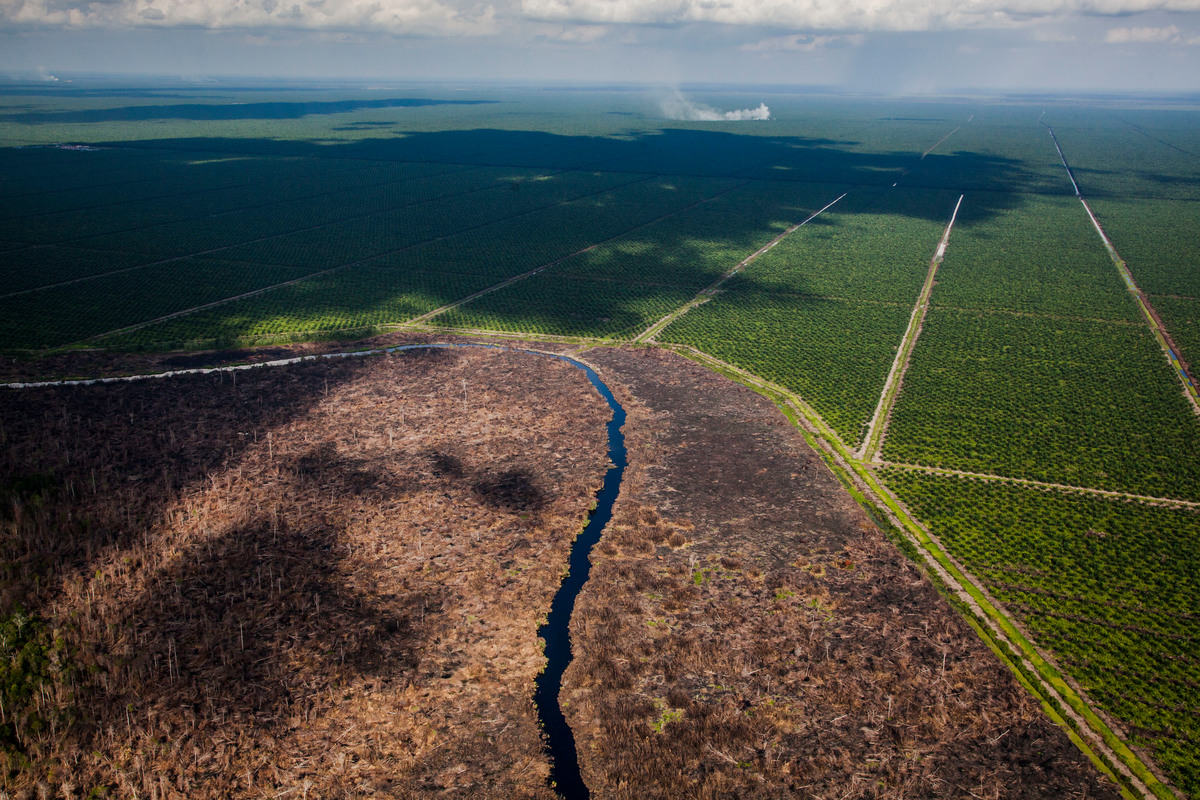All articles
-
RSPO’s 2013 maps resolution languishes despite announcement
“Too little, too late” said Annisa Rahmawati, Greenpeace Indonesia Senior Forest Campaigner, of the RSPO’s announcement it has published members’ oil palm concession maps for Peninsular Malaysia and Sarawak in its own online application.
-
Major consumer brands linked to massive CO2 emissions from Indonesia forest fires
Some of the world’s best known brands are fueling climate change by sourcing palm oil and wood pulp linked to Indonesian forest fires, reveals new Greenpeace International analysis.
-
The RSPO dodges responsibility for its members’ role in Indonesia’s fires crisis
Greenpeace International’s newly published report Burning Down the House shows that 21 of the 30 palm oil producer groups most strongly associated with Indonesia’s ongoing fires crisis are (in whole or part) members of the Roundtable on Sustainable Palm Oil (RSPO). Collectively these RSPO members and their associates account for three-quarters of the fire hotspots…
-
Joint NGO statement on failure of RSPO to meet the demands of global climate crisis
Last year, RSPO members approved a new set of Principles and Criteria that align with the global “No Deforestation, No Peat, and No Exploitation” policies of many of its members. Yet the RSPO’s new standard will only be meaningful if it is audited and upheld in a thorough, comprehensive and competent way.
-
Top consumer companies’ palm oil sustainability claims go up in flames
Unilever, Mondelez, Nestle, and P&G are each linked to up to 10,000 fire hotspots, as they buy from palm oil producer groups with the highest numbers of fire hotpots in 2019. The palm oil traders Wilmar, Cargill, Musim Mas, and Golden-Agri Resources (GAR) have extensive links to this year’s fires in Indonesia and together supply…
-
Palm oil and pulp companies with most burned land go unpunished as Indonesian forest fires rage
Despite the ongoing Indonesian forest fire crisis, no serious civil or administrative sanctions have been given to the ten palm oil companies with the largest areas of burned land from 2015 to 2018, new Greenpeace Indonesia mapping analysis revealed. The Indonesian government has also not revoked a single palm oil licence due to forest fires.
-
Indonesian Forest Fires Crisis: Palm oil and pulp companies with largest burned land areas are going unpunished
A total of 3,403,000 hectares (ha) of land burned between the years 2015 and 2018 in Indonesia, according to analysis of official government burn scar data. In 2015 alone more than 2,600,000 ha of land burned. The fires that ravaged Indonesia in 2015 are considered one of the greatest environmental disasters of the 21st century…
-
Why we’ve had enough of broken promises to protect forests
Today, while the Amazon fires capture international headlines, fires have also been raging here in Indonesia as well that harming the life of so many people.
-
50 million hectares of forests destroyed worldwide, as palm oil sector in Indonesia continues unreformed
By 2020, at least fifty million hectares of forest – an area the size of Spain – is set to be destroyed for commodities despite ten years of corporate commitments to end deforestation, according to a new Greenpeace International report.
-
Indonesian government actively blocking efforts to reform palm oil industry
Ministers in the Government of President Joko Widodo are blocking efforts to reform the palm oil industry. Last week the Indonesian Coordinating Ministry for Economic Affairs ordered palm oil companies not to share information regarding the palm concessions they own.





